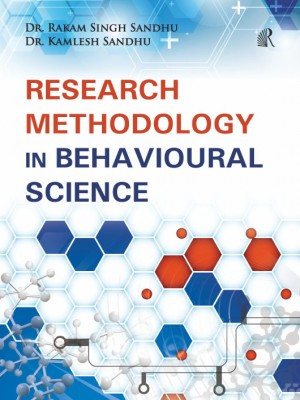
RESEARCH METHODOLOGY IN BEHAVIOURAL SCIENCE
Author: Dr. Rakam Singh Sandhu, Dr. Kamlesh Sandhu
Throughout this book, we have viewed the scientist as a behaving organism whose actions are described and controlled by the same kind of interactions with the environment that are the focus of his or her investigations. The special concern in this chapter is the researcher's interpretive behaviour. It is the researcher's interpretations that are the final and most important result of experimentation. Experimental procedures and data are almost worthless unless they occasion verbal behaviour on the part of the investigator that prompts others to more effective behaviour with regard to the topic under investigation. Behavioural science is the systematic analysis and investigation of human and animal behaviour through controlled and naturalistic observation, and disciplined scientific experimentation. It attempts to accomplish legitimate, objective conclusions through rigorous formulations and observation. Examples of behavioural sciences include psychology and psychobiology. criminology and cognitive science .
Contents: Research Methods Methodology Methodology of the Research Project Methods of Data Collection Tools Experimental Research and Designs Logical Behaviour and Tactical Issues Interpretive Behaviour in Research Methodology Formulating and Testing Hypothesis Research in Educational and Behavioural Statistics
ISBN 9789382110828
1695
1695

